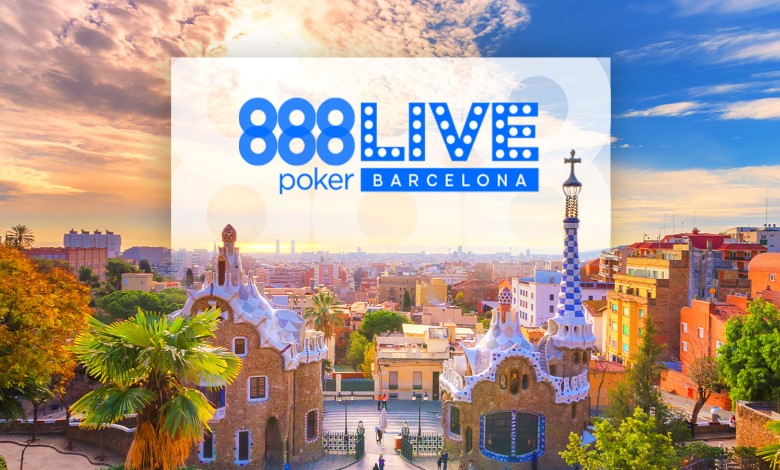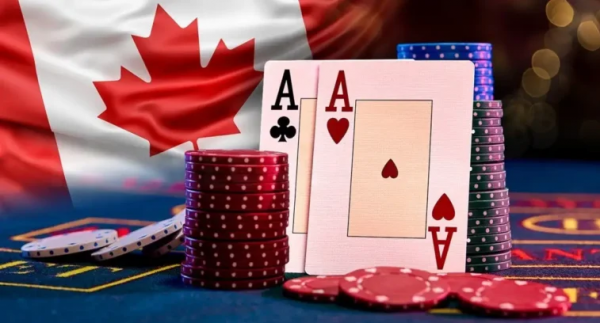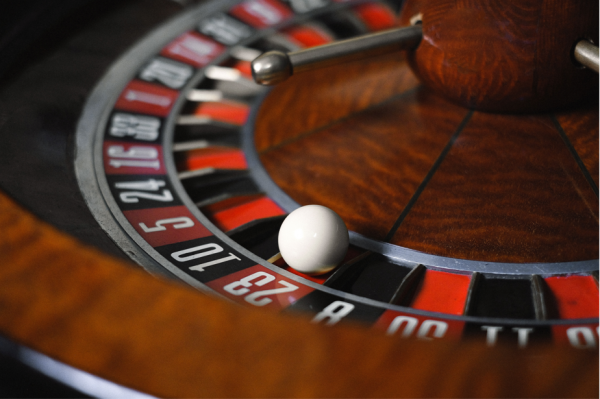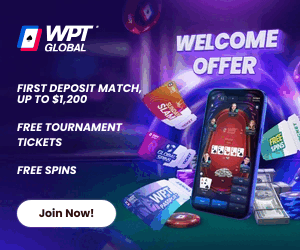Unless you’re Dutch, chances are you don’t know too many people named Remko. If you’re a poker fan, however, you’ve probably heard of at least one: Remko Rinkema. Why does that name ring a bell? Perhaps you’ve become acquainted with him through his reporting at a number of top-tier poker sites. Maybe you recognize his face from having seen his work as a presenter for PokerNews. Alternatively, perchance you’ve just become a recent fan of his after having listened to a couple episodes of his new Remko Report podcast.

Image credit: Tennile Olsen, for PokerNews
If for some reason you haven’t heard of Remko yet, you best start paying attention – this 2015 European Poker Awards double nominee is blazing a path to poker media superstardom right before our very eyes!
Usually Remko is the one doing the interviewing, but now it’s his turn to bask in the limelight a bit. It’s time to get to know him a bit better and achieve a deeper appreciation and understanding of the great work that he does to promote the game of poker that we all love so much.
Without further ado, we invite you to sit back and enjoy our interview with Remko Rinkema.
Pretend you’ve just met someone on the street who doesn’t know much about poker. How would you describe to them what you do for a living?
It’s quite funny actually, because I think that explaining to someone that you are a professional poker player might be easier than saying that you are someone who writes and reports about people who player poker for a living. When it comes to explaining what I do to a complete stranger, it totally depends on how much time we have. If I meet someone in passing I might keep it short and go for the “I’m a freelance writer who mostly writes about poker”, but if we have more time I usually start with pointing out that I travel to poker tournaments around the world and write stories and live updates about them. Many people are more confused after this answer than before they asked the question, but I always love to explain to them what I do exactly since I’m so passionate about it.

Image credit: Jayne Furman for PokerNews
In a way I’m also an ambassador of the game to the outside world. I’m constantly promoting poker and the surrounding industry, as a person’s job comes up in almost every conversation. When people ask more about poker as a game, or when I can sense that they are a bit on the fence about the game, I get even more energized to convince them how much fun the game is and how it’s a great tool to see the world and meet great like-minded people.
What was it that initially drew you to poker?
My own poker-playing days feel like they took place a lifetime ago, but that is how it all started. I’ve always been someone to get extremely hooked on one thing for a certain period of time and poker started out as just that, but the only difference was that with poker I did not lose interest like I did with playing Runescape, Diablo, and FIFA, or watching every single cycling race and European football match on TV.
In the summer of 2006 I went on my last camping trip with my entire family, right before I turned 19, and I met another Dutch guy there who told me about poker. We played every night and he taught me a lot of basic things. A few days after coming home I bought David Sklansky’s Hold’em for Advanced Players and Harrington on Hold’em and I was in it for the long haul.
Thinking back, I remember at first being more worried about learning to shuffle chips, since I felt like that would really make me look like a pro. I was so hooked on the game that I went to every bookstore in the city I lived close to, Leeuwarden, and bought all their poker magazines whenever they were available. They were pricey, but beating my friends at school was enough to keep expanding my library of poker knowledge.
Poker consumed my life and I grinded a lot in the beginning. One of my close friends introduced me to a home game, and I played there every Monday night for two years. It’s funny to mention that every week I played with Pieter de Korver, way before he won the EPT Grand Final.
You’ve truly broken out and become widely known over the last couple of years as a presenter at PokerNews, but you’ve actually been working in the poker media since 2008. How did you get your start?
I went to Journalism school after high school but during that time poker was much more important to me. After six months of basically playing online in my apartment I realized that it wasn’t going to work out, so I dropped out. I moved back in with my parents, as I wasn’t as adventurous as I am nowadays, and took a part-time working position at a call center to have a somewhat normal life and stable income.

Image credit: Frank Op de Woerd for PokerNews.nl
When I look back on those days I know that I was just one big score away from trying my luck as a professional, but in hindsight never having had that huge score saved me. If I had won the Sunday Million back in 2008 I would’ve not only had way too much money for someone as irresponsible as I was back then, but I would’ve also been lying to myself about being good enough to compete in the biggest events. There have been so many one-hit wonders in tournament poker; I could’ve been one of those guys as well.
While the tournament reporting grind certainly doesn’t bring in EPT-title type money, it definitely gives me a stable income and a sustainable lifestyle. Nowadays, as I know many of the best players quite well, I see and understand what goes into competing at the highest level and surviving at the highest stakes. When I play poker now it’s for fun because even though I think that I’m still fairly decent, the amount of hours I put in aren’t nearly enough to beat any sort of variance. This is especially true in a game like No Limit Hold’em, which I’ve completely given up on. If I have some spare time I’ll dabble in mixed games of any sort, as long as the stakes aren’t too high.
But let’s get back to how I managed to get on the tour, and stay on the tour.
A few months after moving back in with my parents, the Master Classics of Poker in Amsterdam rolled around. I went to the event to hang out, just like in the two years prior, with friends I’d met through the Dutch PokerNews forum, but I ended up live blogging my first ever poker tournament. My good friend and colleague Frank Op de Woerd had already covered one WSOP and a couple of EPTs at that point and he liked my work ethic and enthusiasm for the game. I owe my start in poker to Frank, who pushed for me to be on the Dutch live reporting team. A few weeks later I found myself in Prague covering what ultimately became the epic Salvatore Bonavena victory.
Right from the start I knew that this was the perfect job for me, as I loved poker and I loved traveling around. Immediately I started thinking about going to Las Vegas.
In early May of 2009, we got the go-ahead to cover the WSOP for PokerNews.nl. Attending the World Series for the first time is something I will never forget. Our team of four (Dimitri Tholen as our cameraman along with Eric Mertens, Frank, and myself as live reporters) crushed the coverage in the peak year for Dutch poker. That year, as a country, we won two EPTs and a WSOP bracelet, and there were Dutch players playing events at the WSOP every day. We were responsible solely for live reporting coverage of Dutch players. While we were allowed to go home each day when the last Dutch player had busted, I don’t think we went home early even once. The Seniors Event was the only tournament we didn’t cover.
At the 2011 World Series of Poker Europe in Cannes I covered my first event in English. Fortunately, things just blossomed for me really quickly after that. While I understandably wasn’t going to get hired to cover the 2012 Aussie Millions, since I was based in Europe, I wanted to go to Australia so badly that I ended up paying for my own travel just to be able to work the event. Covering that event was a great learning experience, and on the subsequent holiday I planned after the event I ended up meeting my future wife, so it’s safe to say that taking some gambles pays off. While I lost money on the trip, I gained so much from it in retrospect. Sometimes taking chances and chasing dreams can really pay off.
Some of your best-known work has been in the form of interviews with poker pros. You’ve done many long-form written interviews on sites like iGaming.org, shorter video interviews, and just recently have started with audio interviews via the Remko Report podcast. What’s your favorite interview format and why?
To be honest, every format has its charm. Personally, I enjoy doing the long-form written articles but the workload that it creates is just enormous. While it’s a lot of fun to mold a story like that, it’s also quite stressful to turn it into something that stays interesting all throughout the reading experience.

Remko with fellow countryman, the “Flying Dutchman” Marcel Luske | Image credit: Frank Op de Woerd for PokerNews.nl
The podcasts on the iBus Media Network (Remko Report) are my new baby, and I treat it as such. I set high standards for the guests that I’m having on, and I’d like to think that I can entertain and inform people for an hour a week. I’m very new still to the solo podcast format, and I’m hoping to get much better at it over the course of the next few years. I would like to believe that I will always have my own podcast. I just have so much fun conducting an in-depth conversation with someone and really having the time to dig into all the topics I would like to discuss.
Lastly, the short videos are one giant adrenaline rush. It makes little to no difference whether or not I’m interviewing a well-established pro or an online qualifier. Interviewing a top pro creates a completely different challenge compared to interviewing a new kid on the block. With the pros my focus lies in making it interesting, as the person has probably been interviewed at least 10 times. With online qualifiers I’m more likely have to carry the conversation and make them feel at ease.
In the future I would love to write long-form feature interviews for magazines, as I feel like that really suits my style, on top of having the freedom to make the feature-type videos.
What are your goals as a poker video presenter?
The goal with making videos varies from educating to entertaining. Sometimes it’s just a matter of capturing the facts. So depending on what the type of video is we’re making, I have different goals in mind. Personally, after having watched videos in the poker industry for many years, I believe that poker doesn’t need any more questions like “How’s your day going?” or “Tell me about that hand in the first level of the day”.
I strongly believe that we need to be creating characters, seeking out the stories, and eliciting the stories from people who we know have them. Poker needs strong characters – people to root for and against – and with video you can make those things come across very well. Between the time constraints at live events, the short breaks, and people getting knocked out and leaving, it’s not always easy to make the videos I have in mind, but in general I think PokerNews does an amazing job of creating top-notch video content.
Coming up in the industry I was around hostesses like Gloria Balding, Kristy Arnett, Lynn Gilmartin, Sarah Herring, and Laura Cornelius, and it’s safe to say I’ve learned from each and every one of them. Everyone has their own style, and I hope to be able to combine all of them into something people like to watch.
An important aspect that shouldn’t be overlooked is that without excellent videographers like Mantvydas Plinius, Will Thomas, and Omari Bryant these videos wouldn’t even be possible. The picture quality, framing, and the cameraman’s eye are just as important as the questions that are being asked in my opinion.
What are the best and the most challenging aspects of your poker media work?
Since I love my job there are so many things that I could say are ‘the best’ about it, but if I would have to pick one it would be the ability to travel the world with the circus that is the international poker media. I’ve made so many close friends while working over the years, and relying on each other to create great content is just something I really love. Besides the work, it’s of course also very nice to be able to go out for dinners together, a few parties here and there, and travel before and after the events.
If would have to pick out a challenging thing about the job, it’s probably that you need to be very focused for very long stretches. Live reporting is highly underestimated in my opinion, and you won’t know how tough it is until you’ve done a stretch of 10 days in a row. Everyone makes mistakes, myself included, but I take pride in not making many, just like some of the other top guys on the team. Making a mistake in a hand is just as painful for me as it is for the player that’s being reported on, so I’m always looking to correct it right away and make it right. On the other hand, that scrutiny is also something that drives me. During an event like the One Drop, or $50,000 Players Championship, the pressure of knowing that there are thousands of people following your every sentence is an amazing motivator and drive. One of the things I remember best from last year’s WSOP was when the One Drop was down to two tables and together with Josh Cahlik I did hand-for-hand on the outer table. That’s a special moment; because we were blogging the table with the two of us without a camera feed or chip counts to work with. So the best things are quite often also the most challenging things, which keeps it interesting and fun at the same time.
You Tweeted once that interviewing Phil Ivey was a career highlight, which is understandable after you produced your very successful “Ivey Stories” video series. What other work have you done that you can point back to and say you’re proudest of?
I just did the @philivey winner interview for @PokerNews, definitely the highlight of my career in poker! #WSOP
— Remko Rinkema (@RemkoMedia) June 28, 2014
The story behind the Phil Ivey interview is actually quite funny. During the WSOP I helped out where I could on the video team and wasn’t doing them full time. This meant that I was just blogging my usual slate of events and jumping into a video every now and then. When Ivey got heads up in the $1,500 Eight-Game event, PokerNews Editor-in-Chief Donnie Peters pinged me on Skype saying, “If he wins you need to do the interview,” and my heart skipped a beat when I read that. At that point Ivey had a big chip lead and the Amazon room was filled with a roaring crowd. There I stood covering Day 2 of the $10,000 Limit Hold’em Championship in the far corner of the same room, and with every cheer I got more nervous.
When Ivey ended up winning the event, I rushed over there and found a giant crowd of about 200 people waiting to hear what the champ had to say. You could hear a pin drop when my cameraman gave the sign that I was good to go, and then it was up to me. Still with the Limit tournament on my mind, I spaced out on what event Ivey had won and I quickly glanced over at the clock to see what it was. With Ivey you only get one take, and while I now knew what event he had won, I still wasn’t sure about the buy-in. Luckily, I got it right after a one-second hesitation that felt like a lifetime. With a shaking voice and trembling hands, I directed the first question at him and he gave the most Ivey-like answer possible.
“So Phil, you’ve just won your 10th bracelet, what does this mean?”
“Well, it means that I’ve won my 10th bracelet,” Ivey said with a stone cold look on his face.
I was about to sink through the floor, but after half a second he continued by saying how happy he was with this win. In that interview I asked a few more questions, and right as I was closing out the video he interrupted me by referring to the Ivey Stories videos. At that point we basically became best friends, as I playfully asked him if he liked them. He said he did, so now I’m just waiting to get invited to his table at whatever nightclub he wants to go to. Hit me up Phil, I’m getting thirsty!
The series itself, Ivey Stories, is something that Donnie and I conjured up during a discussion about some fresh video content, and it’s certainty something I’m very proud of. Uncovering some of those stories was very exciting and I hope to do many more in the upcoming years.
Besides those, I’m very proud of the years during which I covered the Dutch poker scene with Frank. Especially during the WSOP, we really made the poker fans at home feel like they were there with the videos and live updates we produced.
From a personal point of view, the long in-depth interviews are something I really look back on with pride. The Daniel Negreanu interview I published for iGaming.org, for instance, ran about 22,000 words and I worked on that piece for weeks to perfect it. Also, other pieces like the ones with Pratyush Buddiga, Mike McDonald, Dan Smith, and Anatoly Filatov really meant a lot to me. Being able to uncover some stories that haven’t been talked about previously is just something that really drives me. There are so many more out there waiting to be told.
We had strongly considered you for a spot on our list of the 10 best beards in poker, but we discovered this pre-beard video from the Unibet Open in 2011, so we had to snub you (sorry). Now that you’re on camera a lot, your beard has also risen to prominence within the poker community. Poker fans want to know more Remko! Shower us with some beard wisdom.
Haha! I can for sure say that the beard is here to stay. Besides the fact that I like the way it looks, I also need it to stay on my fiancée’s good side! My baby face wouldn’t do anyone any good, and we all know beards make people look more trustworthy, smart and handsome. Heck, why are there still men without beards? While I can’t get to the Michael Josem beard level I’ll probably keeping rocking the beard at all times, so I better be on your list in 2015!

Image credit: Alexander J Bradley
READ MORE: Check out our Unibet Poker room review
As mentioned, poker fans have really gotten to know you more now that you’re on camera a lot, but all of that airtime is in bite-sized pieces. Clearly, producing a short video takes a lot longer than the 1–5 minutes it runs. Take us through the video production process. What happens in the background before we see the finished product uploaded online?
I’m in a lucky situation to know many of the top pros quite well, or at least I’ve interacted on Twitter with them. So when a funny interesting situation arises, I always make sure to enquire immediately if the person in question is up for doing an interview. Generally speaking, players will be more inclined to say yes and sacrifice some of their break time talking to me if I already know them. The longer sit-down interviews take quite a bit more planning and preparing, but once the camera starts rolling it’s all about making that connection with the person you’re interviewing and asking the right questions.
While the interview is going on, I have complete faith in my cameraman to do his magic. After we’re done, it’s time to review the material and use to best pieces to make a fun and engaging video. In that regard, this past year has been the biggest learning experience for me; I’m finally starting to understand what it takes to create good video content. That’s why it’s so important to collaborate with top professionals working the camera, since someone like Mantvydas gives me very direct feedback on my ideas. For instance, I like to keep shooting, do more, and make things longer. Now, I’m starting to understand that less is sometimes actually more.
It’s no accident that you’re considered to be one of the hardest-working members of the poker media – you sure seem to have a full plate! Do you ever have time to actually play poker? With whom? Are you a plain vanilla Hold’em guy or a mixed games guy?
My serious poker days are far behind me now, and they are not coming back. I do, however, still love the game and when we settle down somewhere I’m sure to dabble in some low-stakes mixed games online, or perhaps the lowest NLHE stakes in a local casino. If it was up to me, much more attention would be paid to mixed games in general, as I’m a big fan. With my Remko Report podcast I try to uncover a bit more about the non-hold’em games and this summer at the WSOP I intend to write and record content that has to do with these games.
Learning more than just Hold’em is both fun and refreshing if you’re used to playing just one game. Just last week I was talking to George Danzer at the European Poker Awards and he said, “I can’t believe that pros that play strictly No Limit Hold’em never get bored” and I feel the same way. So yes, I am a mixed games guy and I truly hope that these games will gain in popularity over the next few years. Poker is so much more than just Texas Hold’em.
Reporting and presenting at a multitude of poker events means you travel a lot. While your travels are for work at the end of the day rather than to play, you clearly seem to love it based on your social media posts. Is this a dream job for you?
Absolutely! Who wouldn’t like being able to travel the world, working an amazing job, and have this much freedom? There is so much of the world I haven’t seen yet, and even though this much traveling is not really sustainable, I would like to do much more of it in the future. I’m lucky my fiancée loves traveling as much as I do, so I’ll always have a travel companion. In the future I can see myself traveling less and focusing on a few marquee events per year, but I don’t think I could ever go without the traveling aspect of my job.
What (other) poker and/or poker media dreams do you still have that you’d like to accomplish?
Working for some of the biggest poker media outlets in the world is still very exciting and a great challenge, but what I would really love is to have a chance to be on camera for ESPN during the WSOP or during the EPT broadcasts. That would also be the scariest thing ever, but that’s a challenge I would gladly take on.
Besides that it’s still a dream of mine to make a full-length documentary like Nosebleed by Victor Saumont or something like Bet Raise Fold. I really admire what those guys did and I think stories like that really show that poker is something far deeper than just a game, or just gambling (if you have to believe the stance certain countries have taken against it). If I can somehow help make poker more widely accepted, understood, and loved than that is something I would love to be involved in.
Thanks for taking the time to speak with us Remko. We wish you much continued success!







Comments